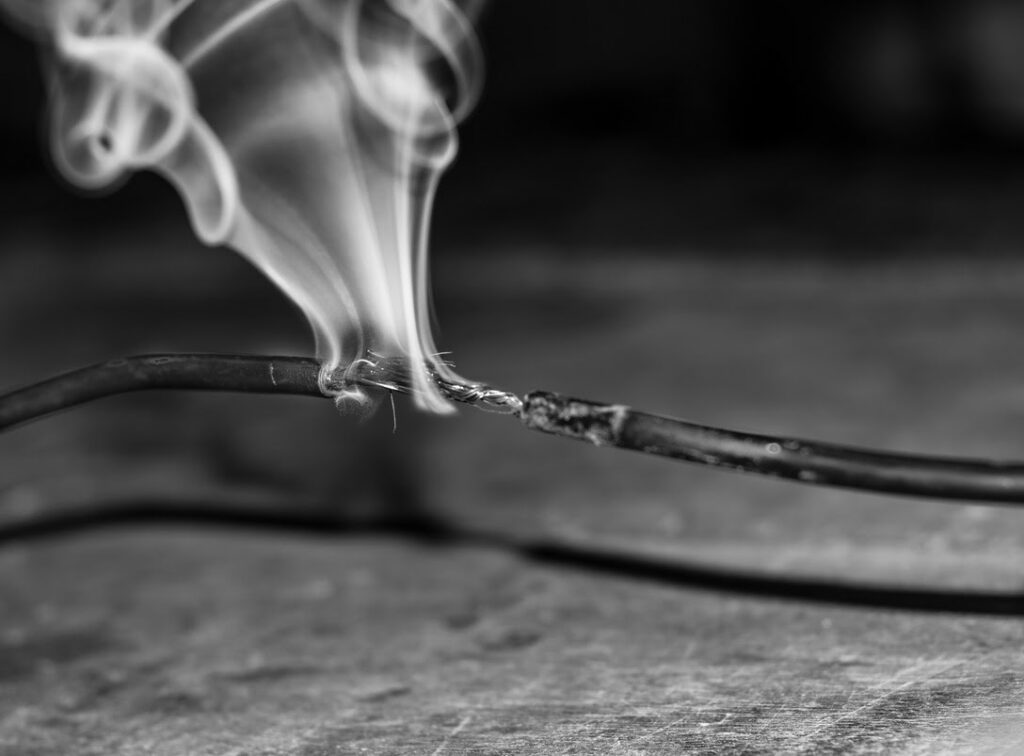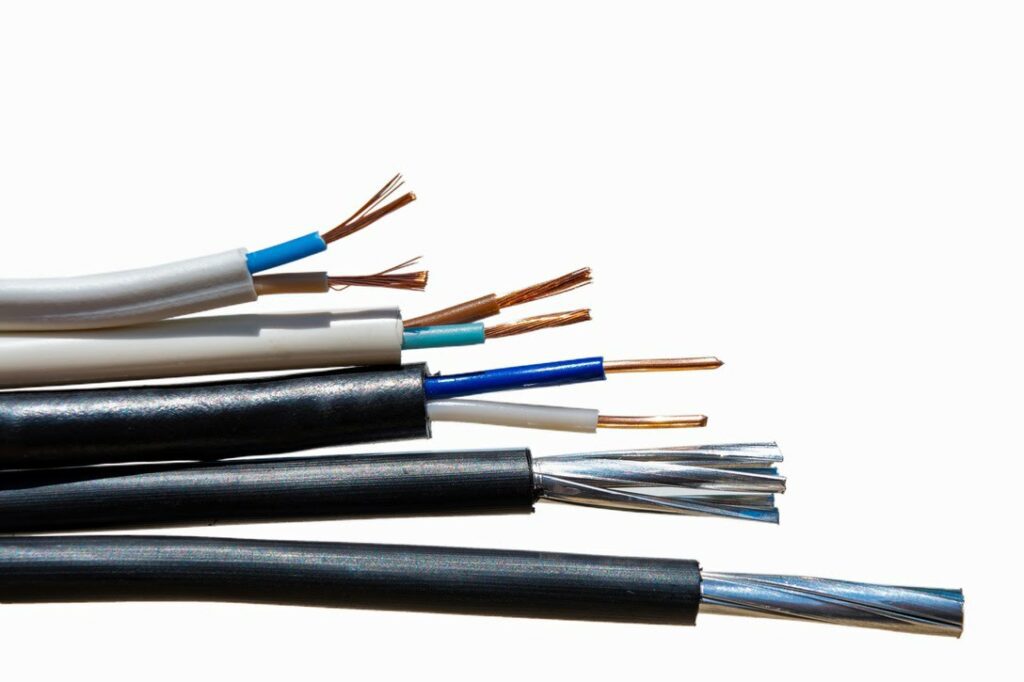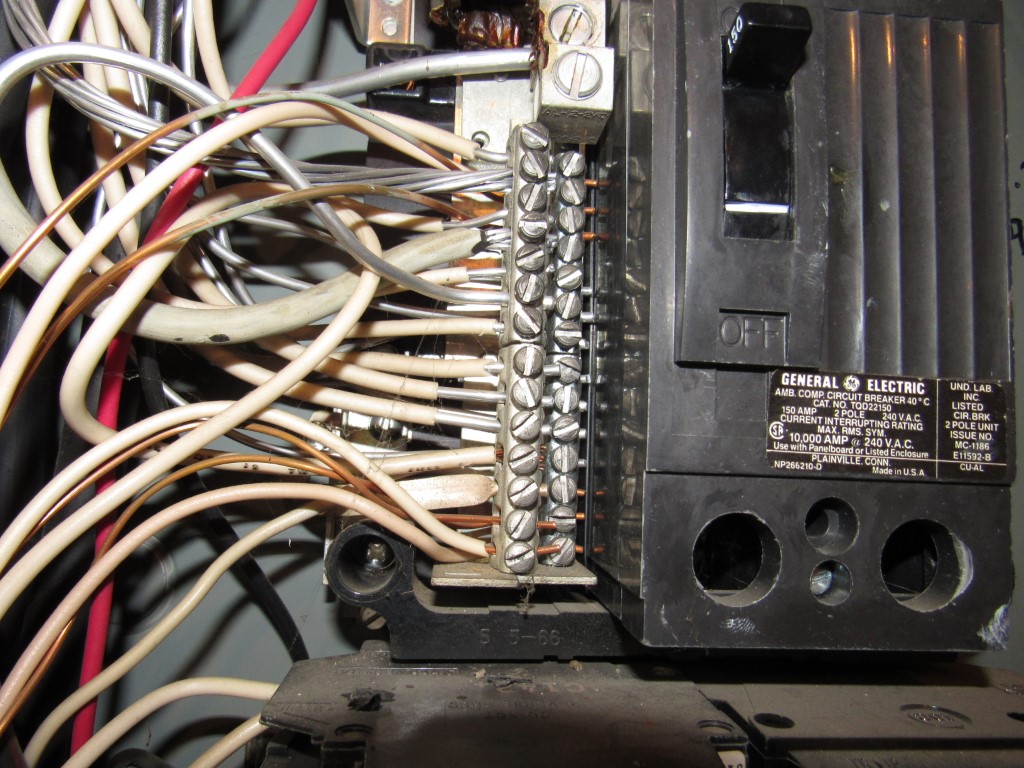Aluminum wiring was never technically made illegal in Alberta, so it still exists in many older homes. But that doesn’t necessarily mean aluminum wiring is ideal—or even safe. Learning more about aluminum wiring and its properties can help you learn what to do if the wires in your home use this common but outdated material. 4-Star Electric is here to help.
We’ve been providing best-in-class electrician services throughout the Calgary area since 1989, so we’ve seen plenty of aluminum wiring and are well-aware of the issues it can cause. Below, we’ll tell you more about aluminum wiring—including the signs it might be in your home and what to do if it is.
Why Does It Matter if My Home Has Aluminum Wiring?
How much difference could the type of metal used in your home’s wiring actually make? The answer might surprise you.
Remember, wires are built to conduct electricity. As such, the type of metal they use is extremely important. Back in the 1960s and ‘70s, aluminum was widely thought to be an effective conductor—and since it didn’t cost much to produce, it was commonly used. Aluminum is also relatively lightweight, which meant wires made from aluminum weren’t prone to sagging.
Unfortunately, these few benefits also come with a whole host of issues—some of which can pose significant safety risks. Let’s look at some of the reasons aluminum wiring isn’t ideal.

Why Aluminum Isn’t the Best Choice for Wiring
Aluminum wiring is more prone to damage and more susceptible to wear-and-tear than other types, which makes electrical malfunctions more likely. These malfunctions can lead to power outages, overheating, and even electrical fires if not maintained.
Here are some of the qualities that make aluminum vulnerable:
High Electrical Resistance
Aluminum wiring actually doesn’t conduct electricity as well as materials like copper. Since aluminum has higher resistance, you need more of it to conduct electricity at the same amperage—which means aluminum wires need to be thicker and take up more space.
Low Ductility
Ductility is a material’s ability to bend or be deformed without breaking. Since aluminum is far less ductile than copper, wires made from aluminum are more prone to breaking when bent or manipulated. When wires break down, they’ll either stop working entirely or increase their resistance to electricity—which can cause overheating.
Prone to Galvanic Corrosion
Galvanic corrosion occurs when some metals come in contact with others while electrolytes such as salt or water are present. Aluminum corrodes this way much more easily than copper, making it more likely that aluminum wiring will break down sooner.
Vulnerable to Oxidation
Exposure to oxygen also causes metals to degrade over time—some more so than others. Aluminum oxidizes at a significantly faster rate than copper, creating a compound that is far less conductive and creating a risk of excessive heat buildup.
High Malleability
Aluminum is easier to compress than copper, which means wires made from aluminum are easier to deform when held in place with screws during installation. Wires that have been deformed result in looser connections over time, which increases electrical resistance and the risk of overheating.
Prone to Thermal Expansion & Contraction
All metal expands in the heat and contracts in the cold—but aluminum does this to a greater degree than copper, which means seasonal temperature changes cause it to warp over time. This eventually destroys the connections between aluminum wiring and the devices that rely on it for current.
Higher Vibration
Electrical current causes metal to vibrate as it passes through—but aluminum vibrates more than copper. Over time, this causes aluminum wiring connections to loosen and break down.
Does My Home Have Aluminum Wiring?
Not all homes have aluminum wiring, but you should know how to check the wiring in your home—especially if it was built decades ago. If your home was built or expanded at any point between 1965 and 1976, chances are high that it has aluminum wiring somewhere.

How to Identify Aluminum Wiring
It’s a good idea to check the wires in your home directly and see what they’re made of. Aluminum wiring can be distinguished by:
- A silver colour—unlike copper wiring, which has a yellow or gold tinge
- Plastic wire jackets marked with the word “aluminum” or the initials “AL”
- Binding terminals made for use with aluminum wire, which will be marked “CO/ALR” (this stands for “copper/aluminum revised”)

What to Do about Aluminum Wiring in Your Home
There are several ways to deal with aluminum wiring in your home, but you should never try to tamper with electrical wiring by yourself. DIY electrical work can create additional performance problems and safety risks. Our experienced professional electricians can help you deal with aluminum wiring in several different ways.
Replacing Aluminum Wiring
The best way to reduce the risks of aluminum wiring completely is to replace it entirely with an effective alternative, such as copper. Some home insurance companies may even require you to replace aluminum wiring in your home before they will cover you.
Connecting Aluminum to Copper
In some cases, aluminum wiring in good condition can be safely connected to newer copper wiring by a process called pigtailing. This involves connecting the copper wire to the termination point (like a switch or device), then using specially-designed aluminum twist-on connectors and detox agents to join it with the aluminum.
CO/ALR connectors, as noted above, are sometimes used to join aluminum and copper wires—but these are not considered complete repairs for aluminum wiring and cannot be used for many parts of a home’s wiring system.
Get Professional Help for Your Aluminum Wiring
The wiring in every home is different, so it’s important to check yours and make sure its safe. Call 4-Star Electric to have a certified professional electrician look for aluminum wiring that could create power issues or safety hazards in your home, and let us show you the most cost-effective way to repair or replace it as needed.


